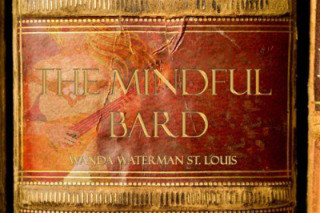 DVD: Land of Plenty
DVD: Land of Plenty
Release date: October 10, 2006
Directed by: Wim Wenders
Young Lana returns to America after years in Africa and the Middle East with her missionary parents and walks right into a volunteer role in a mission in Los Angeles’s homeless district. You will not often find a character like Lana in the movies, although you may be blessed to know someone like her in real life; she is no idealist, not if that means the opposite of a realist. She is familiar with poverty and violence, and in spite of a sensitive and compassionate nature she doesn’t crumple in the leprous underbelly of present-day America. Lana’s moments of joyful communion with God and humans comprise some of the most poignant scenes in the film.
Lana is determined to deliver a letter from her late mother to her estranged Uncle Paul, a Vietnam veteran recently thrown into flashback mode by the 9/11 attacks. Lana and Paul are both, though in different ways, victims of the American government’s decades-long practice of destroying socialist democracies and replacing them with capitalist dictatorships in the name of freedom. Paul, a scruffy, greying man in army surplus who drives a splendidly garish old van full of bygone technology, devotes every waking moment to sniffing out Arab terrorist cells. He sees suspicious activity on every street corner, and the leads he follows are hilarious (he thinks a bulging blue tarp is hiding a one-man submarine).
This is a movie about America’s motley crew of saints and the diverse ways they express their grief in the wake of the terrorist attacks. How appropriate that a German tackled this subject matter! America’s peace activists are squelched and derided at home and when abroad must still endure the hatred the rest of the world bears toward the United States, just as Hitler’s German opponents were, if not killed outright, silenced, imprisoned, and later demonized by a hypocritical West.
This is the first in a proposed series of low-budget films shot with the latest and best digital cameras. The cinematography is breathtaking. The cameras are nearly always hand-held and can squeeze into spaces too cramped for conventional cameras. Close-ups are jarringly compelling, and so unobtrusive to actors that truly intimate performances emerge. These cameras can also use available light, and this makes night shoots much more realistic.
But a truly remarkable achievement is this film’s production model. Everyone working on the project, from painters to lead actors, was paid a hundred bucks a day. Such voluntary equality is a shining jewel in the muck of the film industry’s phenomenal income disparity. It bears a close resemblance to the sharing of goods portrayed in the New Testament church, a freely entered communal arrangement of which Stalin’s Russia now looks like a bad parody.
It is also fitting that it is a Christian who is holding a mirror up to a government that rationalizes its ungodly acts in the name of its religion. In responding to the 9/11 attacks, Wenders does not succumb to the same cynical poseur escapism that afflicted artists and intellectuals in the aftermath of the Second World War. There is a life-wish embedded here, a wish whose attainment depends on the spiritual integrity of those with the persuasive grace to turn America around.
This brave wish is sung by Leonard Cohen in the final scenes: ?Let the lights in the land of plenty shine on the truth some day.?
The Bard could use some help scouting out new material. If you discover any books, compact disks, or movies which came out in the last twelve months and which you think fit the Bard’s criteria, please drop a line to bard@voicemagazine.org. If I agree with your recommendation, I’ll thank you online.


